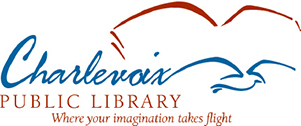Purpose of Meeting
SEAL: Solar Eclipse Activities for Libraries with STAR Net: Two solar eclipses are coming to North America – an Annular Eclipse in 2023 and a Total Solar Eclipse in 2024 – and it's time for public library staff to get ready! Thanks to a grant from the Gordon and Betty Moore Foundation and a supplement to the NASA@ My Library Project, the Space Science Institute's STAR Net team is providing 5 million solar viewing glasses, in-person training workshops, solar science circulation kits, print resources, and more.
Description
These SEAL workshops will prepare and empower public library staff to facilitate meaningful solar and space science programs for their patrons that build curiosity, knowledge and inspiration. Attendees will receive hands-on training on operating solar telescopes and other methods for direct and indirect solar viewing, best practices for developing and facilitating STEM programs, and how to engage with community partners and library-specific digital resource networks. Attendees will also be able to sign up for free solar eclipse glasses to distribute to their communities in advance of both eclipses! STAR Net facilitators, bringing many years of experience building the STEM capacity of public library staff, will work with each state library to customize the workshop experience based on the needs and interests of public libraries within that state. These workshops will use materials from the circulation kits and highlight best practices in using those materials but the strategies, activities and resources shared during the workshop will be useful to attendees whether they have access to a circulation kit or not.
The goals of these solar science workshops are to help library staff:
1. Build off the excitement of the 2023 and 2024 solar eclipses, and engage their patrons in solar science activities
2. Safely and effectively facilitate direct (e.g. solar telescope and Sunoculars) and indirect methods of safe solar viewing
3. Develop and facilitate exciting and interactive STEM programming at their library
While workshops are customizable, almost every solar science workshop will include the following elements:
- Advice on engaging with community partners to promote and support solar science programs
- Ample opportunities for peer-to-peer networking and group discussions
- Direct instruction on setting up and using solar telescopes and sun spotters
- "Guide on the Side" facilitation strategies for STEM learning
- Help navigating STAR Net's online community, where public library staff can share eclipse-related programming ideas, strategies and resources
- Hands-on facilitation of interactive solar science programs designed for library settings
- Advice on leveraging NASA volunteer networks like the Night Sky Network and Solar System Ambassadors
Instructor: Anne Holland, Community Engagement & Exhibits Manager, Space Science Center and Brooks Mitchell, Education Associate, Space Science Center.
